CONSULUS UNIFY Methodology
CONSULUS UNIFY methodology is an approach to organise, analyse and present perspectives, differences and complexity, in a comprehensive and thorough manner, so as to derive practical strategies for innovation and growth that are built on inherent strengths and purpose of a business.2 UNIFY Principles
3 Fundamental Beliefs
Purpose-driven
Inside Out
Unity
See with New Eyes Always
Strengths of Harness
UNIFY Frameworks
5 frameworks we use to support UNIFY methodology:

3-States™
Organization’s Growth & Innovation
9-Dimensions™

3-Signs™
4-Frames™
6Ps™
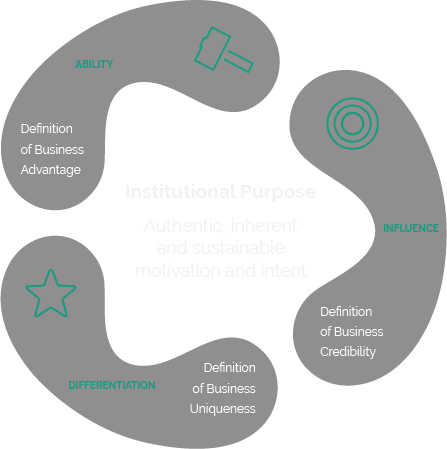
3-States™
A framework to categorise information and look at a business from an interdependent perspective. It helps us understand the dynamics of the organisation and its capacity in deriving success from its company. 3 States include State of Ability, State of Influence, State of Differentiation.
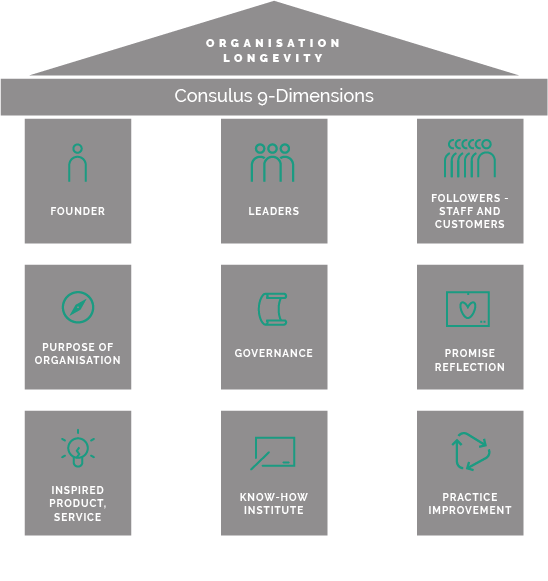
9-Dimensions™
A framework to assess if the company has the capacity to last once the organisation goes beyond its founders. 9 Dimensions include Founder, Purpose of Organisation, Inspired Product and Service, Leaders, Governance, Know-how Institute, Followers – Staff and customers, Promise Reflection, Practice Improvement.
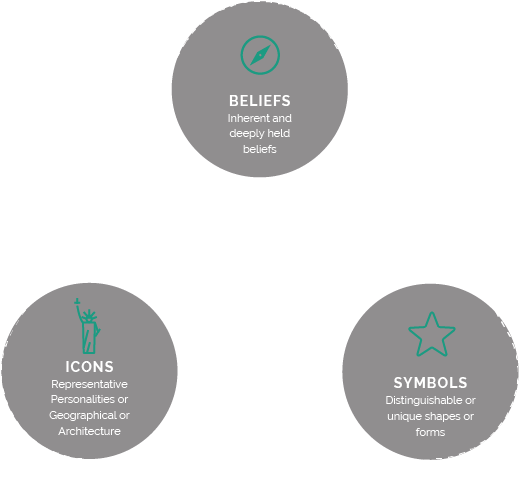
3-Signs™
A framework to identify the interdependent relationships in a visual context and background of the company (beliefs, symbols and icons) to develop a unique and yet relatable visual identity for a business to stay true to its identity and be unique.
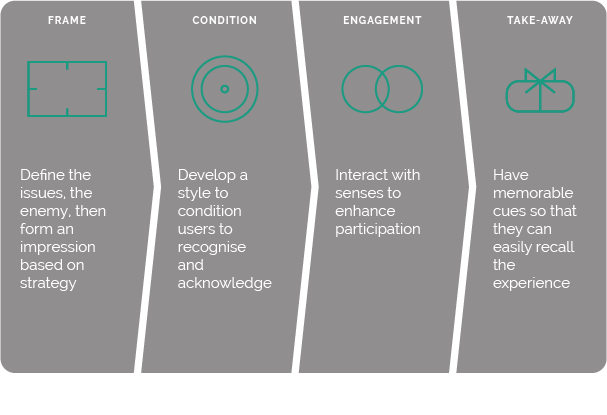
4-Frames™
A framework to identify and define the interdependent relationships of all the touch points of an experience during a customer’s journey. It helps us to create meaningful experiences for brands to connect with their customers at a deeper level so as to improve a customer frequency of engagement and bonding with the brand. 4-Frames include Frame, Condition, Engagement, Take-away.
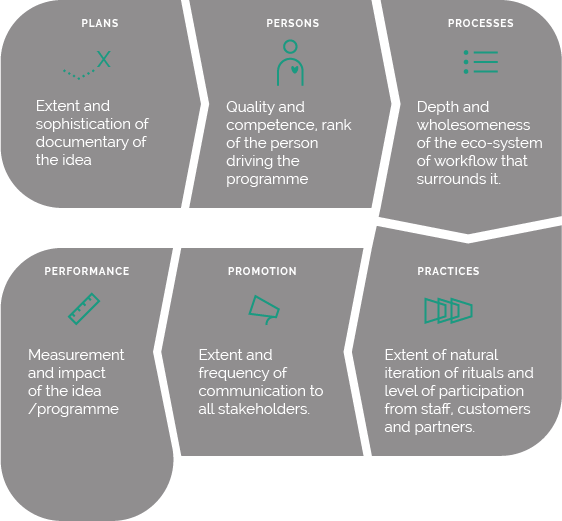
6Ps™
A framework to measure the degree to which an idea or initiative is being put into practice. It helps to assess how committed an organisation is towards making an idea happen. 6Ps stand for Plans, Persons, Processes, Practices, Promotion (previously labeled as Propaganda), Performance.
Kiên trì sáng tạo đến cùng
Tại sao trong sáng tạo, ý tưởng sáng tạo không thôi có giá rất rẻ; nghiên cứu để có những hiểu biết sâu sắc về ý tưởng sáng tạo lại rất hiếm và cách thức hiện thực hoá ý tưởng sáng tạo mới là chìa khóa dẫn đến thành công?
The Struggle for Innovation
Why ideas are cheap, insights are rare, and implementation is key when it comes to innovation.
Harnessing Human Weaknesses
Why companies succeed better when they acknowledge human weaknesses and harness them instead.
Quản trị và khai thác những điểm yếu của con người để thành công
Trong thực tế, rất nhiều lãnh đạo liên tục phải quản trị những đội nhóm yếu kém với đầy những cá nhân ngại thay đổi trong khi người lãnh đạo phải cố gắng quản trị tất cả những tính xấu thuộc về bản chất của mỗi con người.
Not enough to know thy enemy
Why companies should not be fixated on information collection but information action.
Creative China on the Rise
Lessons we can learn from China’s Long March towards Creativity and Innovation.
Win by 3 Principles of Design
How Steve Jobs, Howard Schultz and Ho Kwon Ping applied the principles of design in strategy to gain an edge.
The Cancer of Complacency
How can organisations fight complacency and retain a healthy sense of competitiveness?
America: Failure by Design
Lessons from America’s malfunction for Asian Organisations.
Is your company ready for a United World?
How can people’s desire for collaboration and global ethics shape the behaviour of companies in a new world order?










